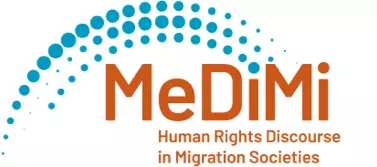Sub-project A.1
Who is empowered by Strasbourg? Migrants and States before the ECtHR
The project focuses on the ambivalent role of the European Court of Human Rights (ECtHR) as an actor and forum for the “humanrightization” in legal discourse on migration. It examines how States as litigants in migration-related cases put forward exclusionary “counter-norms” (asserting, for example, security, economic, cultural and foreign policy interests) in a human rights-compatible manner, and how the ECtHR processes them in its adjudication practice.
To the extent that international legal standards of Human Rights provide benchmarks for migration law practice in Convention states, ECtHR jurisprudence is central to an understanding of the scope, forms, and consequences of the advance of human rights discourse in European migration societies. As both an actor and a forum, the ECtHR on the one hand reflects the “humanrightization” of societal discourse and practice that MeDiMi examines, while on the other hand, it significantly shapes this process.
Previous research has elaborated on the extent to which the ECtHR has taken up the concerns of migrants, including an analysis of the strategic litigation of advocacy groups (“norm entrepreneurs”). The (subtle) mechanisms that States use to influence the Court’s decisions have hardly been studied so far. The project examines how States present their exclusionary interests to the ECtHR in the language of human rights and how the Court processes these interests so that human rights are co-formed by them and transformed from within. The study starts from the assumption that states act as strategic parties to the process, who seek to shape not only the decision of the ECtHR in the concrete case, but also the legal doctrine underlying it, according to their interests. Methodologically, the project combines legal doctrinal analysis with socio-legal approaches and discourse analysis. It analyses judgments of the ECtHR on migration in the broad sense since 1998. For a selection of judgments, the case files in Strasbourg are additionally consulted in order to capture the full pleadings of the respective states involved in the proceedings.
Principal Investigator: Assoc. Prof. Dr. Janna Wessels
Research Associates: Mónica Ávila Currás, Jessica Klüger
Vrije Universiteit Amsterdam
